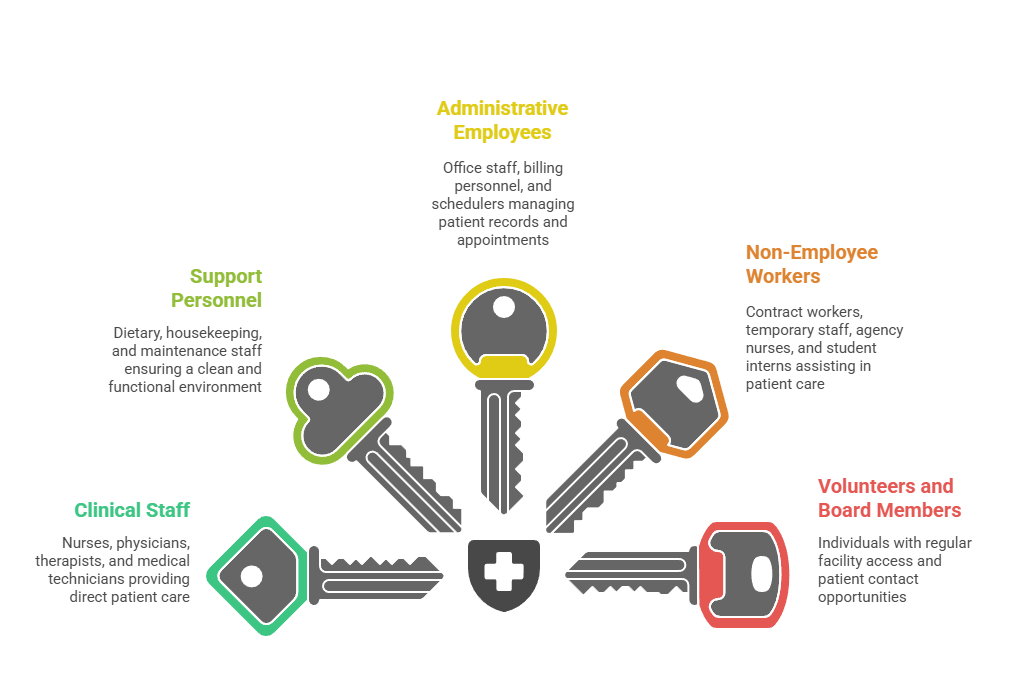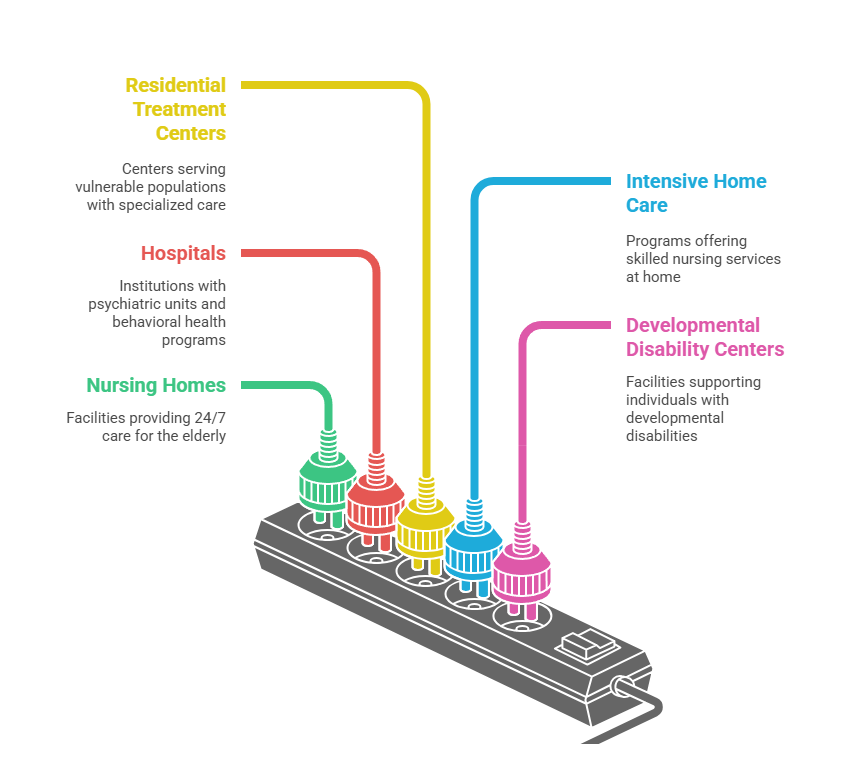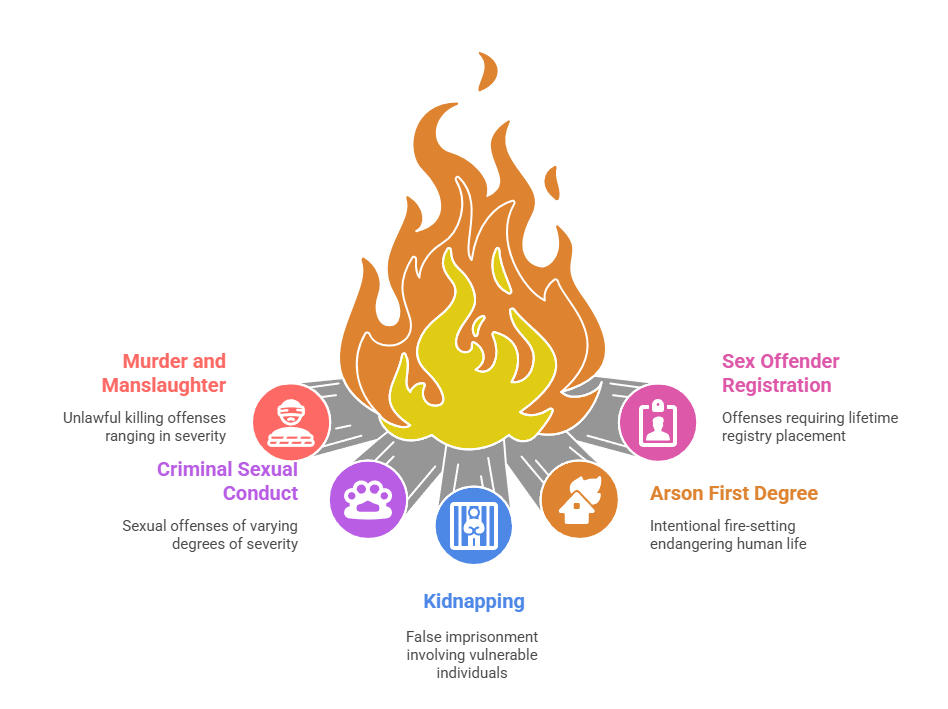Minnesota healthcare facilities must navigate a dual-system compliance framework that combines federal FCRA requirements with the state's mandatory DHS NETStudy 2.0 background study system—a complex infrastructure that can delay hiring timelines by 20-45 days if not properly managed. This comprehensive guide addresses the unique challenges HR directors and compliance officers face when screening healthcare employees under Minnesota Statutes Chapter 245C, including tiered study levels, disqualifying offense categories, and cost-effective workflow optimization strategies that reduce processing delays while maintaining regulatory compliance.
Key Takeaways
- Minnesota healthcare employers must complete a DHS background study through the NETStudy 2.0 portal for all employees with direct patient contact, a requirement separate from standard employment background checks.
- The state operates a two-tiered system with comprehensive background studies ($25 fee, 15-45 day timeline) and abbreviated studies ($12 fee, 5-15 day timeline) depending on facility type and position responsibilities.
- Disqualifying offenses under Minnesota Statutes Chapter 245C include violent crimes, sexual offenses, financial exploitation, and specific drug-related felonies within designated lookback periods.
- Healthcare facilities licensed by DHS—including nursing homes, assisted living facilities, home care agencies, and residential treatment programs—face mandatory compliance regardless of facility size.
- The NETStudy 2.0 system requires employers to maintain active accounts, manage employee profiles digitally, and respond to notification requirements within strict timeframes to avoid hiring complications.
- Reconsideration requests allow individuals with disqualifying offenses to petition for employment eligibility, but the process adds 45-90 days to hiring timelines and requires substantial documentation.
- Facilities can face civil penalties ranging from $1,000-$10,000 per violation for employing workers without completed background studies or failing to follow proper notification procedures.
- Implementing streamlined onboarding workflows that initiate DHS background studies simultaneously with job offers reduces time-to-hire by approximately 30% while maintaining full compliance with both state and federal requirements.
Understanding Minnesota's Dual Background Check System
Minnesota healthcare facilities operate within a unique regulatory framework. This framework requires both standard employment screening and state-mandated background studies. Unlike most states where healthcare employers can rely solely on traditional criminal background checks, Minnesota imposes an additional layer through the Department of Human Services (DHS) background study system.
This dual requirement stems from Minnesota Statutes Chapter 245C. The statute establishes comprehensive screening protocols specifically designed to protect vulnerable populations receiving healthcare services. The distinction between these two systems creates operational complexity for HR departments, particularly those new to Minnesota's regulatory environment.
Federal FCRA Requirements vs. State DHS Mandates
The Fair Credit Reporting Act (FCRA) governs traditional employment background checks conducted through consumer reporting agencies. Minnesota healthcare employers must comply with all FCRA requirements, including providing pre-adverse action notices and obtaining written authorization from candidates. However, these checks differ significantly from state-mandated DHS background studies.
Minnesota DHS background study requirements operate independently of FCRA regulations. The state directly conducts these studies by checking multiple specialized databases. Healthcare facilities cannot substitute FCRA-compliant background checks for DHS background studies—both processes must occur separately to achieve full compliance.
Who Qualifies as a "Background Study Subject"
Minnesota defines background study subjects more broadly than many employers initially realize. The definition extends beyond traditional clinical staff to encompass anyone with patient or resident access. This comprehensive approach ensures thorough protection of vulnerable populations across all facility operations.
Healthcare facility employee screening policies must account for these expanded categories to avoid compliance violations. Understanding who requires background studies prevents inadvertent violations and streamlines the hiring process. Facilities that rely on staffing agencies must verify that contracted workers have completed appropriate studies before allowing patient contact.
The following individuals require completed background studies:

- Clinical Staff: Nurses, physicians, therapists, and medical technicians with direct patient care responsibilities
- Support Personnel: Dietary workers, housekeeping staff, and maintenance personnel with access to care areas
- Administrative Employees: Office staff, billing personnel, and schedulers who regularly enter patient care zones
- Non-Employee Workers: Contract workers, temporary staff, agency nurses, and student interns with unsupervised patient interaction
- Volunteers and Board Members: Any individual with regular facility access and potential patient contact opportunities
This expanded scope means facilities must track background study status for a wider population than initially expected. Proper documentation systems become essential for managing compliance across these diverse worker categories.
NETStudy 2.0 Background Check Process Explained
The NETStudy 2.0 system represents Minnesota's digital infrastructure for managing all DHS background studies. Launched as an upgrade to the previous paper-based system, NETStudy 2.0 requires healthcare facilities to create organizational accounts, manage employee submissions electronically, and receive notifications through the online portal. Setting up and maintaining a NETStudy 2.0 account requires designated facility administrators who complete online training modules and maintain current contact information.
Step-by-Step Submission Process
The submission process begins when facilities create a new employee record within their organizational account. Employers enter biographical information and position details through the system interface. The platform then generates a unique study identification number and provides instructions for any additional requirements.
Fingerprinting requirements depend on the study type and the individual's previous background study history in Minnesota. First-time comprehensive background study subjects must complete electronic fingerprinting at approved locations. The system tracks fingerprint submission status and alerts facilities when this component remains incomplete, which often represents the primary bottleneck in processing timelines.
Timeline Expectations and Status Monitoring
Minnesota DHS background study requirements include specific processing timeframes that vary based on study complexity. Understanding these timelines helps facilities set realistic expectations with candidates and plan operational staffing needs. Proactive monitoring reduces delays and identifies issues early in the process.
Processing timeframes differ significantly by study type:
| Study Type | Standard Timeline | Extended Timeline | Primary Delay Factors |
| Abbreviated Background Study | 5-15 business days | 20-30 business days | Out-of-state record verification, name discrepancies |
| Comprehensive Background Study | 15-30 business days | 45-60 business days | Fingerprint processing delays, manual review requirements |
The NETStudy 2.0 portal provides real-time status updates that facilities should monitor daily during active hiring periods. Status indicators include "Pending Fingerprints," "In Progress," "Pending Review," and "Study Complete." Compliance officers should establish internal protocols for following up on studies exceeding expected timeframes, particularly when conditional hires await clearance to begin patient contact duties.
Comprehensive vs. Abbreviated Background Studies
Minnesota's tiered approach to background studies creates different requirements based on facility licensing type and specific position responsibilities. Understanding which study level applies to each hiring situation directly impacts both processing costs and timeline expectations. Misclassifying study types represents a common error that can result in compliance violations or unnecessary expense.
Comprehensive Study Requirements and Costs
Comprehensive background studies apply to individuals working in licensed facilities under Minnesota Statutes sections 245A and 245C. These intensive studies examine all available criminal history sources and healthcare-related databases. The comprehensive approach provides maximum protection for patients in higher-risk healthcare environments.
The state fee for comprehensive background studies is $25 per study, paid through the NETStudy 2.0 system. This fee covers DHS processing but excludes fingerprinting costs, which typically add $50-$75 per individual. For facilities with significant hiring volume, these combined costs create substantial budget implications—a facility hiring 50 employees annually invests approximately $3,750-$5,000 in background study fees alone.
Comprehensive studies are required for these facility types:

- Nursing homes and skilled nursing facilities with round-the-clock care
- Hospitals with psychiatric units or behavioral health programs
- Residential treatment facilities serving vulnerable populations
- Intensive home care programs providing skilled nursing services
- Settings serving individuals with developmental disabilities requiring specialized support
Abbreviated Study Eligibility and Limitations
Abbreviated background studies apply to positions in less intensive healthcare settings. These streamlined studies examine Minnesota criminal history and disqualification records but omit FBI fingerprint checks. This reduced scope results in both lower costs and faster processing times.
Abbreviated studies cost $12 per submission and typically complete within 5-15 business days. However, eligibility restrictions limit abbreviated study use. Individuals who have resided in Minnesota less than five consecutive years generally require comprehensive studies regardless of position type. Additionally, if an abbreviated study reveals potential disqualifying information, DHS may upgrade it to a comprehensive study mid-process.
Healthcare Background Check Disqualifying Offenses
Minnesota Statutes Chapter 245C establishes specific offense categories that create either permanent or temporary disqualifications from healthcare employment. The state structures disqualifications around protecting vulnerable populations from foreseeable harm based on criminal history patterns. Disqualifications operate independently from an employer's willingness to hire—even if a facility wants to employ an individual with a disqualifying offense, state law prohibits patient contact until that person successfully completes a reconsideration process.
Permanent Disqualification Categories
Permanent disqualifications under Minnesota law include specific serious offenses that create lifetime bars from healthcare employment without reconsideration opportunities. Healthcare facilities cannot employ individuals with permanent disqualifications in positions involving direct contact with patients or residents. The prohibition remains absolute regardless of how much time has passed since the offense or evidence of rehabilitation.
These offenses create permanent disqualifications:

- Murder and Manslaughter: All degrees of unlawful killing offenses
- Criminal Sexual Conduct: First through fourth degree sexual offenses
- Kidnapping: False imprisonment involving minors or vulnerable adults
- Arson First Degree: Intentional fire-setting endangering human life
- Sex Offender Registration: Any offense requiring lifetime registry placement
When background studies reveal permanent disqualifications, facilities must immediately withdraw conditional employment offers. Alternatively, they may reassign current employees to non-direct-contact positions if operationally feasible.
Conditional Disqualifications and Lookback Periods
Conditional disqualifications create temporary employment bars based on offense type and time elapsed since conviction or sentence completion. The lookback period varies by offense severity, ranging from 5 to 15 years. Careful calculation of these timelines ensures accurate eligibility determinations and proper compliance documentation.
| Offense Category | Lookback Period | Examples |
| Violent Felonies | 10-15 years | Assault, robbery, terroristic threats |
| Financial Crimes | 10 years | Theft, fraud, forgery, embezzlement |
| Controlled Substance Felonies | 10 years | Drug distribution, manufacturing |
| Domestic Violence | 7 years | Assault of family/household members |
| Healthcare Violations | 7-10 years | Medicaid fraud, patient abuse |
For example, felony theft convictions disqualify individuals for 10 years from sentence completion. Gross misdemeanor assault creates a 7-year lookback period. Controlled substance felonies involving distribution result in 10-year disqualifications, whereas possession offenses may involve shorter periods.
Reconsideration Process and Set-Aside Procedures
Minnesota provides a reconsideration process allowing individuals with disqualifying offenses to petition for employment eligibility. This administrative procedure enables healthcare facilities to potentially hire qualified candidates whose criminal histories would otherwise create automatic disqualifications. However, the reconsideration process significantly extends hiring timelines and requires substantial documentation from both candidates and employers.
Submitting Effective Reconsideration Requests
Reconsideration requests must be initiated through the NETStudy 2.0 system after a background study identifies a disqualifying offense. The individual subject to disqualification bears primary responsibility for compiling required documentation. Facilities play a supporting role by describing the position and explaining their hiring rationale.
Required documentation includes:

- Personal Statement: Detailed explanation of offense circumstances and subsequent life changes
- Rehabilitation Evidence: Treatment completion certificates, support group participation records, counseling documentation
- Employment References: Letters from supervisors at positions held since the offense demonstrating work quality and reliability
- Character References: Professional contacts attesting to rehabilitation and current character
- Facility Support Letter: Employer statement describing position duties, supervision structure, and risk mitigation measures
Stronger reconsideration requests demonstrate specific workplace safeguards that minimize risk. Enhanced supervision protocols or position modifications limiting certain responsibilities strengthen applications. Processing timeframes for reconsideration requests typically span 45-90 days, during which the candidate cannot begin work in patient-contact roles.
Set-Aside Approval Success Factors
DHS approval rates for reconsideration requests vary significantly based on offense type and supporting documentation quality. Applications involving property crimes generally receive more favorable consideration than violent offenses or crimes against vulnerable populations. Substantial time elapsed since the offense strengthens applications considerably.
Evidence of sustained employment, education completion, and community involvement during the intervening period demonstrates successful rehabilitation. Denial of reconsideration requests can be appealed through Minnesota's administrative hearing process, but appeals add several additional months to resolution timelines. Facilities should carefully evaluate whether pursuing reconsideration makes operational sense given these extended timeframes.
Compliance Strategies for Different Healthcare Facility Types

Minnesota healthcare facilities face varying compliance complexity levels based on their licensing structure, patient population characteristics, and organizational size. Tailoring background study workflows to facility-specific circumstances improves efficiency while maintaining regulatory compliance. Facilities that implement standardized procedures appropriate to their operational context reduce processing errors and timeline delays.
Large Healthcare Systems and Hospital Networks
Multi-facility healthcare systems face unique challenges coordinating background studies across numerous locations and departments. Centralized compliance departments typically manage NETStudy 2.0 submissions for all system facilities, creating consistency but requiring sophisticated tracking systems. Large organizations benefit from establishing dedicated background study coordinators who develop specialized expertise in the platform.
Healthcare systems should implement applicant tracking systems (ATS) with integrated background study workflow modules. These technology solutions automatically trigger submissions when candidates reach specified hiring stages. The upfront investment in integrated systems delivers substantial long-term value through reduced administrative labor and faster time-to-hire metrics.
Small Facilities and Home Care Agencies
Smaller healthcare facilities and home care agencies often lack dedicated compliance staff. Office managers or HR generalists handle multiple functions, including background study responsibilities. These organizations benefit from simplified procedures and external resources that provide expertise without requiring full-time specialists.
Cost-effective compliance approaches include:
- Standardized Checklists: Position-specific background study procedures that reduce errors during staff turnover
- Industry Association Membership: Access to shared compliance resources, training materials, and peer support networks
- HR Compliance Consultants: Contracted expertise for complex situations without maintaining in-house specialists
- Template Policies: Pre-drafted procedures that ensure consistency across hiring cycles
Small facilities should consider partnering with organizations like the Minnesota Home Care Association and LeadingAge Minnesota. These associations provide member resources including background study training and template policies. The modest membership investment typically costs less than penalties associated with compliance violations.
Cost Management and Hiring Timeline Optimization
Background study fees, fingerprinting costs, and processing delays create both direct financial impacts and indirect costs through delayed productivity. Strategic cost management and timeline optimization deliver measurable operational benefits while maintaining full compliance. Understanding the total cost of compliance helps facilities budget accurately and identify optimization opportunities.
Fee Structures and Payment Systems
The base DHS fees represent only partial costs. Total expense per hire includes fingerprinting fees, internal administrative labor for data entry and tracking, and opportunity costs from unfilled positions. Comprehensive cost analysis reveals the true financial impact of background study requirements.
| Cost Component | Comprehensive Study | Abbreviated Study |
| DHS Processing Fee | $25 | $12 |
| Fingerprinting Fee | $50-$75 | Not required |
| Administrative Labor (1-2 hours) | $30-$60 | $30-$60 |
| Total Direct Cost | $105-$160 | $42-$72 |
For a facility hiring 30 employees annually, total background study costs typically range from $4,500-$8,000 including all components. Facilities can reduce per-study costs through several approaches that don't compromise compliance quality.
Establishing NETStudy 2.0 payment accounts with pre-loaded credits eliminates individual transaction fees. Negotiating corporate rates with fingerprinting vendors for high-volume submissions reduces per-print costs by 15-30%. Most significantly, streamlining internal workflows to minimize administrative labor delivers sustainable cost reduction.
Accelerating Background Study Timelines
Processing speed directly impacts hiring competitiveness in tight labor markets. Candidates with multiple job offers typically accept positions with the shortest time-to-start. Background study efficiency becomes a competitive advantage that helps facilities secure top talent.
Timeline acceleration strategies include:
- Immediate Initiation: Start background studies upon conditional offer acceptance rather than waiting for other onboarding documentation (reduces timeline by 3-5 business days)
- Proactive Candidate Communication: Provide fingerprinting instructions and location lists within 24 hours of study submission (eliminates scheduling confusion delays)
- Daily Status Monitoring: Check NETStudy 2.0 portal daily and proactively contact DHS about studies exceeding expected timeframes (identifies resolution opportunities earlier)
- Conditional Hiring Protocols: Implement appropriate risk management procedures allowing provisional employment while studies process (maintains operational continuity)
Facilities that implement these practices typically reduce average time-to-hire by 20-30% compared to reactive approaches. This improvement translates to better candidate acceptance rates and reduced operational disruption from understaffing.
Conclusion
Navigating Minnesota healthcare worker background checks requires understanding the state's unique dual-system framework combining federal FCRA compliance with mandatory DHS NETStudy 2.0 background studies. Healthcare facilities that master the distinction between comprehensive and abbreviated studies, understand disqualifying offense categories and lookback periods, and implement streamlined submission workflows achieve both regulatory compliance and operational efficiency. The reconsideration process provides flexibility for hiring qualified candidates with criminal histories while protecting vulnerable populations. By tailoring compliance strategies to facility-specific circumstances and investing in process optimization, Minnesota healthcare employers transform background study requirements from compliance burdens into manageable components of effective workforce management systems.
Frequently Asked Questions
How long does a Minnesota healthcare background check take to complete?
Abbreviated background studies typically complete within 5-15 business days, while comprehensive studies require 15-45 days depending on fingerprint processing speed. Facilities can monitor real-time status through the NETStudy 2.0 portal. Initiating studies immediately upon conditional job offers minimizes hiring delays and improves candidate experience.
Can healthcare facilities conduct their own background checks instead of using NETStudy 2.0?
No. Minnesota Statutes Chapter 245C requires licensed healthcare facilities to complete DHS background studies through NETStudy 2.0 for all employees with direct patient contact. Traditional employment screening cannot substitute for the state-mandated system. Both processes must occur separately to achieve full compliance.
What disqualifying offenses prevent healthcare employment in Minnesota?
Permanent disqualifications include murder, criminal sexual conduct, kidnapping of minors or vulnerable adults, and offenses requiring sex offender registration. Conditional disqualifications with varying lookback periods (5-15 years) include assault, theft, controlled substance crimes, fraud, and domestic violence. Specific lookback periods depend on offense classification and severity.
How much do Minnesota DHS background studies cost?
Comprehensive background studies cost $25 per submission plus fingerprinting fees of $50-$75. Abbreviated studies cost $12 per submission and typically don't require fingerprinting. Total costs per hire including administrative labor range from $75-$160 depending on study type and facility workflow efficiency.
Can individuals with criminal records work in Minnesota healthcare?
Individuals with criminal records may work in Minnesota healthcare depending on the offense type, time elapsed, and position responsibilities. Offenses outside lookback periods don't create disqualifications. Individuals with disqualifying offenses within lookback periods can pursue reconsideration requests, though approval isn't guaranteed and processing adds 45-90 days.
What is the difference between comprehensive and abbreviated background studies?
Comprehensive studies ($25) include FBI fingerprint checks, review all state and federal databases, and apply to high-risk healthcare settings like nursing homes and hospitals with psychiatric units. Abbreviated studies ($12) examine only Minnesota records without fingerprinting and apply to lower-risk settings. Specific eligibility criteria determine which study type applies.
Who needs a background study in Minnesota healthcare facilities?
All individuals with direct contact access to patients or residents require completed background studies. This includes clinical staff, dietary workers, housekeeping, maintenance personnel, administrative employees with care area access, volunteers, contract workers, temporary staff, and student interns. The requirement extends beyond traditional employees to any individual with patient access privileges.
How long are Minnesota healthcare background studies valid?
Background studies remain valid as long as an individual maintains continuous employment or affiliation with Minnesota healthcare facilities. When an individual separates from all healthcare employment for more than 120 days, a new background study is required. Studies completed within the previous 36 months may qualify individuals for conditional hiring while a new studies process.
Additional Resources
- Minnesota Department of Human Services - NETStudy 2.0 Portal
https://www.dhs.state.mn.us/main/idcplg?IdcService=GET_DYNAMIC_CONVERSION&RevisionSelectionMethod=LatestReleased&dDocName=dhs16_140947 - Minnesota Statutes Chapter 245C - Background Studies
https://www.revisor.mn.gov/statutes/cite/245C - Federal Trade Commission - Fair Credit Reporting Act Compliance Guide
https://www.ftc.gov/business-guidance/resources/employment-background-screening-files-use-background-reports - Minnesota Hospital Association - HR and Workforce Resources
https://www.mnhospitals.org - LeadingAge Minnesota - Long-Term Care Compliance Resources
https://www.leadingagemn.org

GCheck Editorial Team
Meet the GCheck Editorial Team, your trusted source for insightful and up-to-date information in the world of employment background checks. Committed to delivering the latest trends, best practices, and industry insights, our team is dedicated to keeping you informed.
With a passion for ensuring accuracy, compliance, and efficiency in background screening, we are your go-to experts in the field. Stay tuned for our comprehensive articles, guides, and analysis, designed to empower businesses and individuals with the knowledge they need to make informed decisions.
At GCheck, we're here to guide you through the complexities of background checks, every step of the way.





